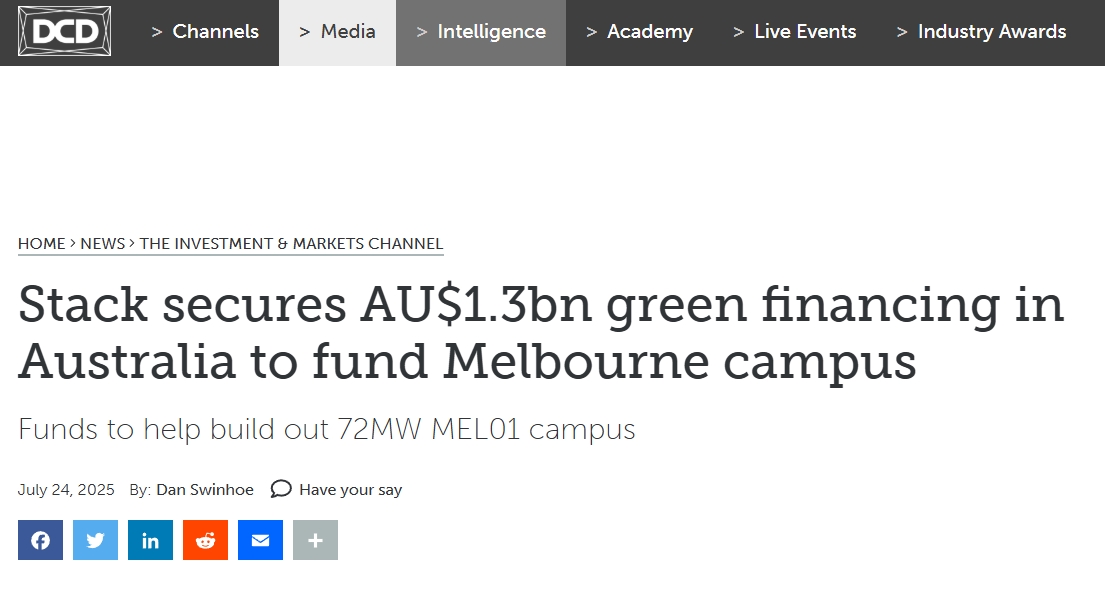NTT’s Abhijit Dubey: ‘Many governments are focused on maintaining data sovereignty and ensuring that critical data is not being stored and moved across the globe’ © NTT
July 30, 2023, /Financial Times/ - The push by a growing number of countries to exercise greater control over data collected within their borders is boosting demand for data centres, according to one of the world’s largest operators, despite concerns of an industry slowdown.
The concept of data sovereignty, in which data is subject to the laws of the country where it is held, has become of greater importance especially in Europe since the introduction of the EU’s General Data Protection Regulation in 2018. The goal is to offer greater protection and oversight in the collection, processing and storage of sensitive data such as individuals’ email addresses or credit card details.
Abhijit Dubey, chief executive of the overseas division of Japanese telecoms company NTT, said that demand from governments for data to be stored within their own countries meant more facilities, especially in smaller cities, now needed to be built.
“Many governments are focused on maintaining data sovereignty and ensuring that critical data is not being stored and moved across the globe,” Dubey told the Financial Times. “As more and more countries ask for localised data, they will need more data centre capacity locally, which is a net positive for us.”
Dubey said that in previous years data tended to be stored in large global data centre hubs such as London, Frankfurt, Amsterdam and Paris that served many countries. However, he said that more are now being built in “tier-two cities”, citing Manchester and Warsaw as examples.
Tokyo-based NTT, which is the third largest data centre operator after Equinix and Digital Realty, operates in 20 countries with centres in London, Frankfurt and Amsterdam. Having recently built a centre in Bonn, it plans to build others or expand existing facilities in Zurich, Madrid and Vienna.
“Increasing data sovereignty rules compels content providers to reassess this [global hub] strategy and diversify their data storage requirements across more markets,” said Nathan Luckey, a senior managing director at Macquarie Asset Management.
The infrastructure-focused asset manager invested in NTT’s data centre business in Europe and North America last year.
GDPR has been adopted as a global standard by many companies but some countries have also implemented their own data sovereignty legislation or guidance. Germany in 2018 introduced a law that restricts data transfers to third countries, while France has established a scheme that grants cloud companies a security certification aligned with GDPR.
The penalties of falling foul of data protection legislation can be steep. In May, Facebook owner Meta was fined a record €1.2bn by the Irish regulator for transferring personal data of European users to the US without adequate data protection mechanisms.
However Tom Glover, head of Emea data centre transactions at real estate adviser JLL, argued it is the explosion of data, which will grow even faster because of artificial intelligence, that is driving demand for data centres in addition to data sovereignty.
“GDPR and data protection laws will force data generated in Germany to remain in Germany, so of course, that means that you need data centres in Germany,” he said. “But what drives the growth in data centres is the sheer volume of data that’s getting created, stored and analysed.”
Predictions that conventional data centres will be in demand are a fillip for the sector as the world’s biggest tech groups such as Amazon and Google shift from using third-party facilities to develop their own. Last year veteran short seller Jim Chanos announced he would be betting against the sector, arguing that cloud computing would make bricks-and-mortar providers redundant.
Digital Realty this week lowered its full-year earnings guidance after a sharp drop in the amount of space leased to large tech companies in the Americas.








